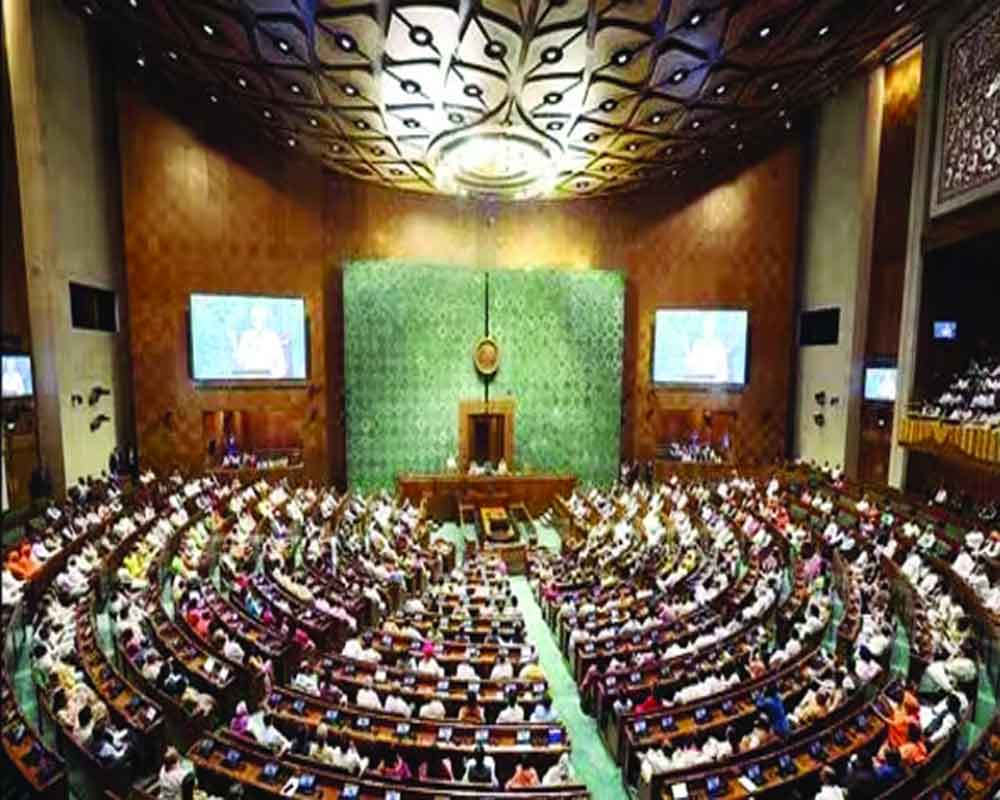Parliament adjourns for the last time before LS polls are held and the next Govt assumes office
As both Houses of Parliament have been adjourned sine die one last time before the general elections, it is time to reflect on the Government's achievements, challenges and legacy of the past five years. This period has been marked by significant policy reforms, legislative milestones and moments of both triumph and controversy. The concluding session of Parliament holds special significance as it serves as a crucial juncture for the Government to showcase its accomplishments and for the Opposition to hold the former accountable for its actions. Over the past five years, the Government has introduced a plethora of reforms across sectors, ranging from economy and governance to social welfare and national security. Initiatives such as the Goods and Services Tax (GST), the Insolvency and Bankruptcy Code (IBC) and ambitious welfare schemes like Ayushman Bharat and Pradhan Mantri Awas Yojana have left a deep impact on the nation's socio-economic milieu. However, alongside these successes, the Government has faced its fair share of challenges and criticism. Issues such as economic slowdowns, agrarian distress, unemployment and social unrest have tested the administration's resolve and elicited strong reactions from both critics and supporters. Debates on contentious issues like the Citizenship Amendment Act (CAA), farm laws and handling of COVID-19 pandemic have dominated parliamentary discourse.
Besides, the Government’s inability to take timely action to quell Manipur violence would also be a blot on its tenure. As the 17th Lok Sabha is bid farewell, the parliamentarians must assess the overall progress made and identify areas that require further attention. This introspection is essential not only for the ruling party but for the entire political spectrum to understand the pulse of the nation and address people's aspirations effectively. Beyond legislative achievements, the last five years have witnessed significant shifts in the political landscape with coalition dynamics, rise of regional parties and evolving voter preferences shaping the electoral narrative. The general elections present an opportunity for citizens to voice their verdict on the Government's performance and chart the course for the nation. Moreover, the conclusion of the session marks the beginning of a new chapter in India's democratic journey, where the electorate will exercise its right to choose the next set of leaders to steer the country forward. It is time for political parties to engage in constructive dialogue, present their vision and earn the electorate’s trust. In this transitional phase, lawmakers must uphold the principles of democracy, foster inclusivity and prioritise mass welfare. The Government's legacy will be defined not only by its legislative accomplishments but also by its commitment to upholding democratic values, promoting social justice and growth for all. As the nation embarks on the next phase of governance, let us reflect on the lessons learnt and communicate effectively to our would-be lawmaker representatives.


























